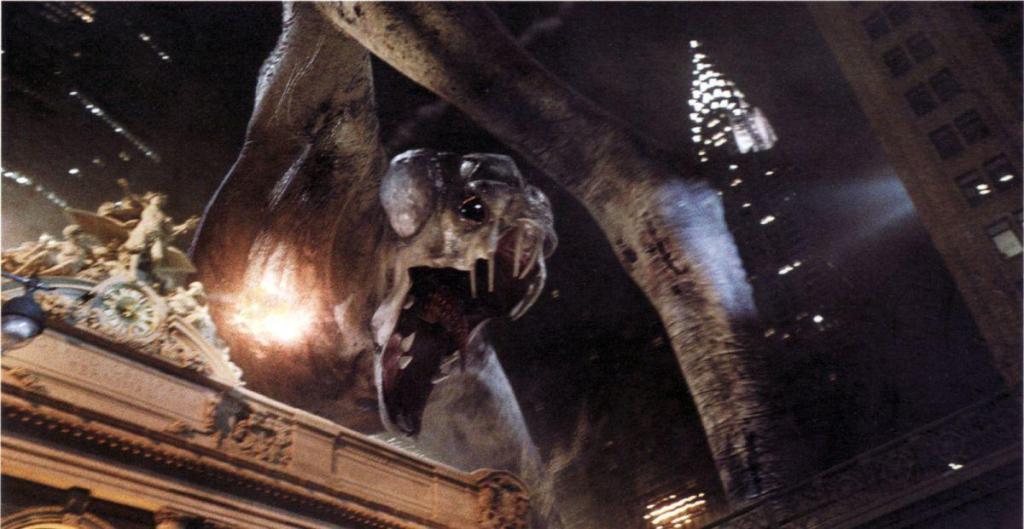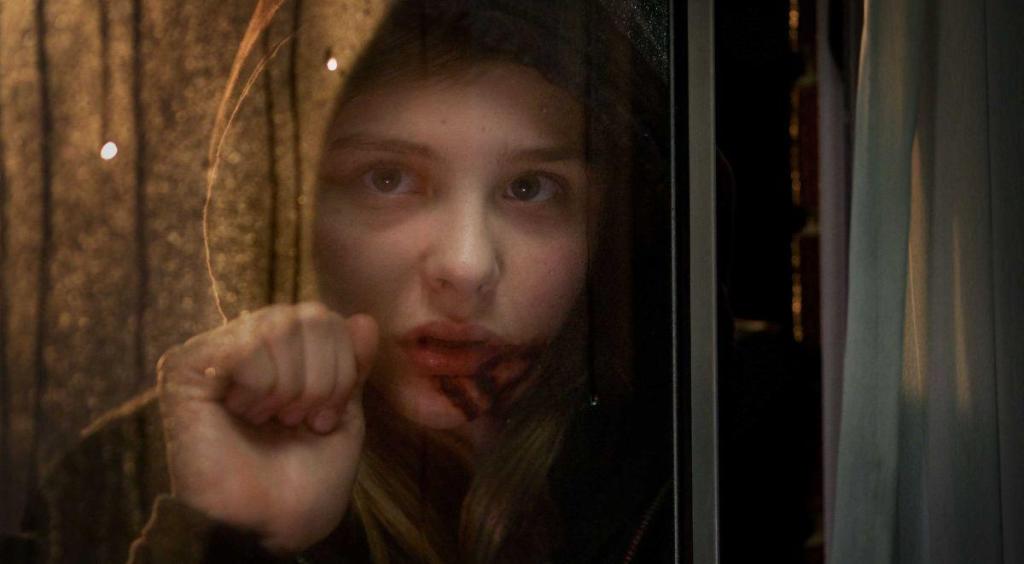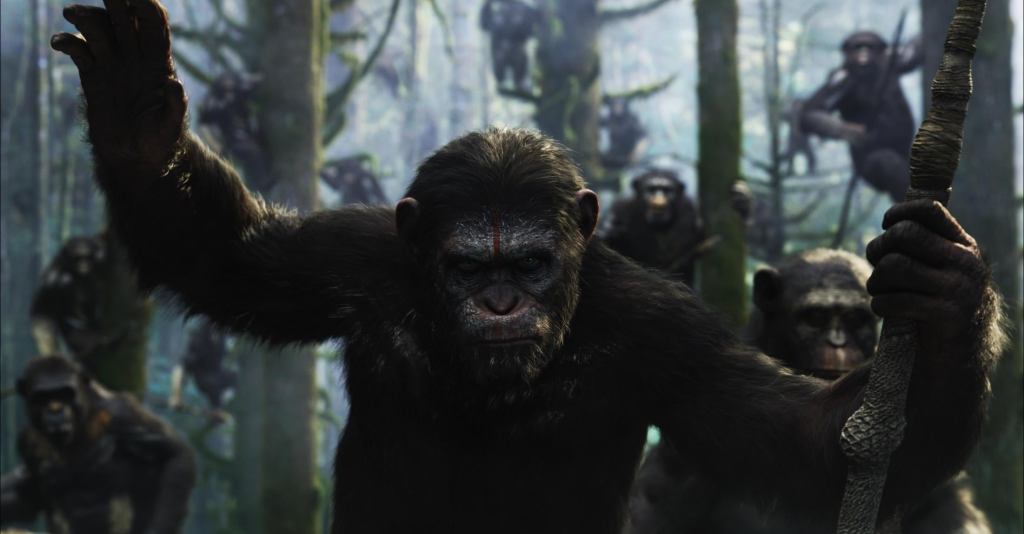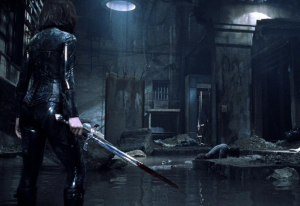From the perspective of someone with a lifelong obsession with movies, it’s easy to look at the careers of certain directors and see such a wide collection of hits that it all seems like a dream. Filmmaker Matt Reeves is the latest example of this, a director whose career spans so many different corners of genre filmmaking, and all of them done so well, that one might think of it like a movie of its own. With his upcoming film The Batman Reeves has added another notch to his belt making this a prime opportunity to comb through the man’s filmography. We break it all down below, making it crystal clear why his (still incomplete) oeuvre as a director is utterly unique in the grand scale of modern moviemaking.
Videos by ComicBook.com
At the start of Reeves’ career are two early efforts we must acknowledge, first his student short film “Mr. Petrified Forrest” which he produced at USC with frequent collaborator J.J. Abrams and which became a part of the horror anthology Future Shock, despite not really being a horror movie. Reeves’ short is the thing that ended up landing him an agent and getting him on the radar of others, leading to the second early effort, his first official feature film as a director, The Pallbearer. The 1996 feature stands apart from all of his other releases because… it’s a rom-com.
Though garnering lackluster reviews at the time, the film does feature a mid-FRIENDS David Schwimmer, Gwyneth Paltrow just two years before Shakespeare in Love, and Toni Collette. Despite a mixed response and poor box office, none other than the legendary Roger Ebert awarded the film 3 stars out of 4, noting Reeves’ direction specifically, writing: “The director, Matt Reeves, has a master plan, and it’s amazing how a movie with so many detours can arrive so convincingly at its destination.” Ebert seemed to have great admiration for Reeves’ films, reviewing his next two movies and awarding them a 3 out of 4 and a 3.5 out of 4 respectively. Although Ebert tragically died in 2013, earning the esteemed film critic’s respect is something every filmmaker can cherish.

Reeves took a 12-year sabbatical from directing feature films after The Pallbearer but his return to the form would be a title that put him on the map in a big way, 2008’s Cloverfield. Part-found footage movie, part-kaiju spectacular, Cloverfield was notable for succeeding in both of those subgenres but also for being among the first films to wholly embrace the J.J. Abrams’ mystery box marketing aesthetic. In fact, the entire idea behind the film came from a trip to Japan by Abrams who wanted to create a monster for America like they have there with Godzilla. Reeves’ monster may not have the same amount of appearances as his Japanese cousin, but it’s the mark of a great director’s touch that it even exists at all.
“The thing about it is that the movie was really inspired by Godzilla,” Reeves said during a press conference for Cloverfield back in 2008. “It’s a horror movie of its time in the way that Godzilla was a reaction to the anxieties of that time – post-Hiroshima/Nagasaki – a movie very much about the anxiety during the atomic age. We felt that in doing a monster movie for our country and our time that it would definitely be reflective of the anxieties we all feel since 9/11 and so that was definitely something we were aware of from the beginning. Although, at the end of the day, we were aware that what we were making was a fantasy. That was a sort of an entry point for the film, a way in, but ultimately what we made was a monster movie. But I think that all really interesting genre films tend to reflect the anxieties of the time in which they were made – horror films and sci-fi films reflect our deep-seated fears and are often very reflective of the time in which they were made.”

After Cloverfield came another unique opportunity which Reeves was able to capitalize on, the revival of the Hammer brand. Previously a factory of a studio in the 1960s and 1970s, Hammer Film Productions released countless iconic horror films with updated versions of Frankenstein and Dracula, featuring more violence and sex than their Universal Monster counterparts, but also classic originals like The Quatermass Xperiment, The Shadow of the Cat, and Never Take Candy From A Stranger. In the late 2000s the label was revived after decades of dormancy and Reeves’ became attached to helm their first theatrical feature film, an American adaptation of the Swedish vampire novel Let the Right One In.
Already there was something working against Reeves’ movie; it was being perceived as an English-language remake of a well-regarded foreign film, which seldom drew enthusiastic responses at the time, a feeling that largely continues, but the target on its back was already quite big since the 2008 Let the Right One In movie had rekindled interest in R-rated vampire tales since Twilight was safer a pop culture sensation. Reeves’ version, Let Me In, would go on to become a major chapter in vampire films in its own right, standing apart from its Swedish cousin in unique ways and even earning the approval of the author of the original novel, John Ajvide Lindqvist. Though the film failed to light the box office on fire it was a critical success and has become one of the few examples of the “Good horror remake,” but also one of the best Hammer movies to date.
“It’s ironic that I make genre films now, because they scared me,” Reeves told Den of Geek in 2010 while promoting the film. “Hammer films, in particular, I remember my relationship with them was that they’d be on late night television, and that I would be peeking through my fingers at them, stealing a look at the lurid scenes with Christopher Lee and bright red blood, and all the stuff that gave me nightmares…There’s a kind of pleasure in knowing, cyclically, that maybe years from now, there’ll be someone watching through their fingers that goes into films and make movies, but Hammer films definitely affected me in that way.”

Following the success of 2011’s Rise of the Planet of the Apes, it seemed like the sci-fi franchise had found its legs and was back to being… an actual franchise. When Rise director Rupert Wyatt dropped out of the sequel it was only about two weeks before Reeves was officially announced as the man behind the second film, which would become 2014’s Dawn of the Planet of the Apes. Upon its release the film earned near unanimous praise and would go on to become the highest grossing film in the entire franchise and the #8 highest grossing movie of the entire year globally. The success of the film and the journey that Reeves and star Andy Serkis took lead ape Caesar on prompted immediate development on the next film, 2017’s War for the Planet of the Apes.
A culmination of not only the most recent series of films in the series but a slingshot that propels the story of the apes to the classic films from the 1960s & 1970s, War for the Planet of the Apes is the highest-rated entry in the franchise with a 94% rating on Rotten Tomatoes. With his two movies in the series, Reeves was not only able to revive the series to its former glory of being spectacle science-fiction with a message but push the limits of visual effects to new heights thanks to their collaborations with WETA digital. If a Mount Rushmore for the Planet of the Apes franchise were to exist it would no doubt feature producer Arthur P. Jacobs, makeup artist John Chambers, actors Roddy McDowall and Andy Serkis, and Reeves.
“Planet of the Apes was my Star Wars before Star Wars became my Star Wars,” Reeves told The Scotsman in 2017. “I was obsessed. I had all of the dolls. I had a little 8mm reel of Beneath the Planet of the Apes that I used to play before there was any videotape. I had records; I had comic books. I wanted to be an ape, desperately.”

Now we arrive at the present, with Reeves becoming just the sixth director to helm a live-action Batman movie, an even more exclusive club than any of the other prestigious circles he joined with his other films. With his film Reeves was able to begin a fresh chapter for the DC Comics icon, rebooting the property to create an all-new world for the Dark Knight Detective and his rogues gallery. In assembling a new cast of actors to play these parts, Reeves has cemented his place not only as one of the most in-demand filmmakers of the era but one whose enthusiasm for these stories matches the fans.
“I love Batman, and I’ve loved Batman since I was a kid. I never even imagined when I began making movies that I would do genre movies because I just loved certain types of movies that were character-based,” Reeves previously said at DC FanDome. “It’s really interesting, as I got deeper into genre, I realized that was a way to do very emotional stories, but under the guise of these great, mythic tales….He’s a very alive character, and to me, to tell a version of Batman that wasn’t about how he became Batman, but about the early days of how he is Batman -and he is so far from being perfect – and watch us see him becoming what we all know about him, and see it in new ways. I felt like that was the way to do something that hadn’t been done, and that was really what I was excited to be able to do in this iteration.”

Across his career, Matt Reeves has made a great found footage movie which is also a great kaiju movie, a great vampire movie which is also a great Hammer horror movie, two great Planet of the Apes movies, and now a brand new Batman movie. These are the things that kids reading Fangoria magazines and DC Comics dream about: making a mark on huge sects of popular culture and doing it so boldly that your initials are legible from space. You cannot talk about Planet of the Apes without mentioning Reeves’ contributions, and you cannot talk about monster movies, found footage movies, or even American horror remakes without specifically setting his films aside as “the exceptions.” Reeves’ version of Batman hasn’t yet arrived in theaters, but considering the push it’s getting from the studio and the amount of spin-offs already in development (a GCPD and a Penguin series are coming to HBO Max) there’s clearly confidence from the studio in his vision. Mark it as another win for the fan-turned-filmmaker.
The Batman arrives exclusively in theaters on March 4th.








